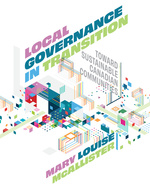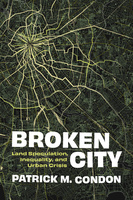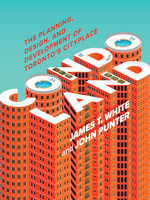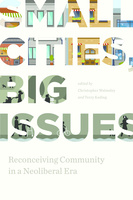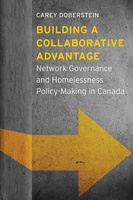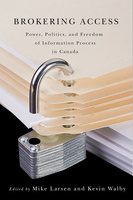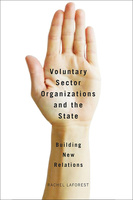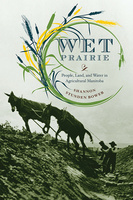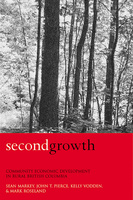Local Governance in Transition
Toward Sustainable Canadian Communities
Local Governance in Transition presents a framework for conversations around technological, ecological, and economic challenges – and encourages innovative thinking for those interested in exploring sustainable solutions.
Broken City
Land Speculation, Inequality, and Urban Crisis
Broken City argues that skyrocketing urban land prices drive our global housing market failure – so, how did we get here, and what can be done about it?
Condoland
The Planning, Design, and Development of Toronto’s CityPlace
In an era of frantic vertical urbanization known as “condoism,” Condoland explores the planning and design of Toronto’s CityPlace, one of North America’s largest residential development projects – and reveals what can happen when the real estate industry comes to dominate city planning.
Small Cities, Big Issues
Reconceiving Community in a Neoliberal Era
If local governments accept a social agenda as part of their responsibilities, the contributors to Small Cities, Big Issues believe that small cities can succeed in reconceiving community based on the ideals of acceptance, accommodation, and inclusion.
Building a Collaborative Advantage
Network Governance and Homelessness Policy-Making in Canada
This comparison of three major Canadian cities over a twenty-year period draws on network governance theory to show that effective homelessness policy must be built on inclusive, collaborative decision making that includes policy makers and civil-society actors.
Indian Ernie
Perspectives on Policing and Leadership by Ernie Louttit
Retired police sergeant Ernie Louttit shares stories from the streets of Saskatoon, struggling to bring justice to communities where the lines between criminal and victim often blurred.
Brokering Access
Power, Politics, and Freedom of Information Process in Canada
Drawing together the perspectives of social scientists, journalists, and ATI advocates, Brokering Access explores the policies and practices surrounding access to information in Canada, highlighting the struggle between the public’s desire for transparency and the government’s culture of secrecy.
Voluntary Sector Organizations and the State
Building New Relations
This book traces developments in the voluntary sector in Canada since the early 1990s, offering an up-to-date portrait of the federal government’s evolving relationship with voluntary organizations.
Offshore Petroleum Politics
Regulation and Risk in the Scotian Basin
This comprehensive study of petroleum politics in the Scotian Basin reveals the complex interplay of regulation and risk as industry, federal, and provincial authorities struggle to develop Canada's Atlantic offshore oil and gas resources.
Wet Prairie
People, Land, and Water in Agricultural Manitoba
This in-depth exploration of surface water management in southern Manitoba reveals how coping with environmental realities has altered both residents’ relations with each other and their ideas about the role of the state.
Citizens Adrift
The Democratic Disengagement of Young Canadians
Citizens Adrift is a rich study of the generational decline in political involvement that offers recommendations as to how to stem the erosion of democratic life.
Perverse Cities
Hidden Subsidies, Wonky Policy, and Urban Sprawl
Distorted price signals and flawed public policy create powerful and largely hidden perverse subsidies and incentives that promote urban sprawl.
The Sprawl Repair Manual
The Sprawl Repair Manual demonstrates a step-by-step design process for the re-balancing and re-urbanization of suburbia into more sustainable, economical, energy- and resource-efficient patterns, from the region and the community to the block and the individual building.
Cities for People
Renowned architect and urban planner Jan Gehl explains the methods and tools he has used to reconfigure unworkable cityscapes into safe and sustainable cities for people – something he has helped do in Copenhagen, Melbourne, and New York City.
Seven Rules for Sustainable Communities
Design Strategies for the Post Carbon World
If widely used, these rules would lead to a much more livable world for future generations – a world that is not unlike the better parts of our own.
Tales of Two Cities
Women and Municipal Restructuring in London and Toronto
In this thought-provoking book, Sylvia Bashevkin examines the consequences of divergent restructuring experiences in London and Toronto.
Second Growth
Community Economic Development in Rural British Columbia
A look at historical and contemporary restructuring, linking development of rural communities with resource development and Aboriginal marginalization.
Governing Ourselves?
The Politics of Canadian Communities
This stimulating text considers questions of influence and power within local institutions and decision-making processes using numerous illustrations from municipalities across Canada.

